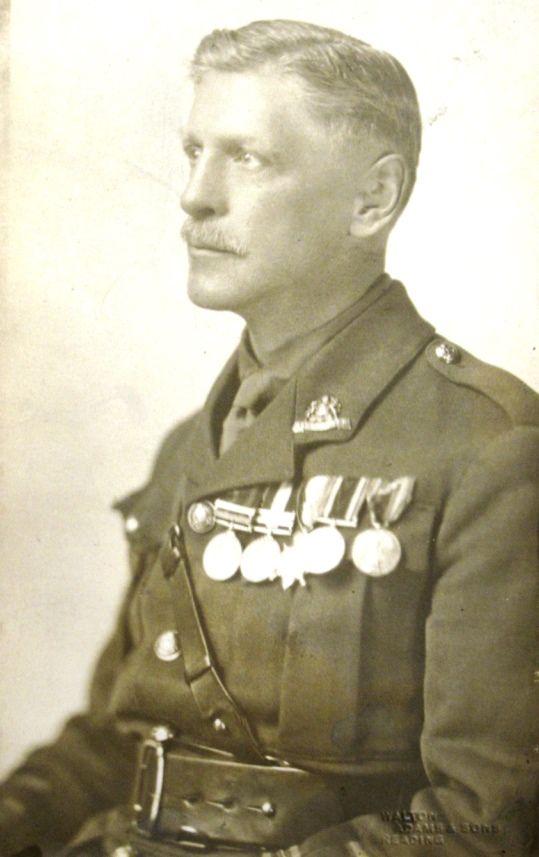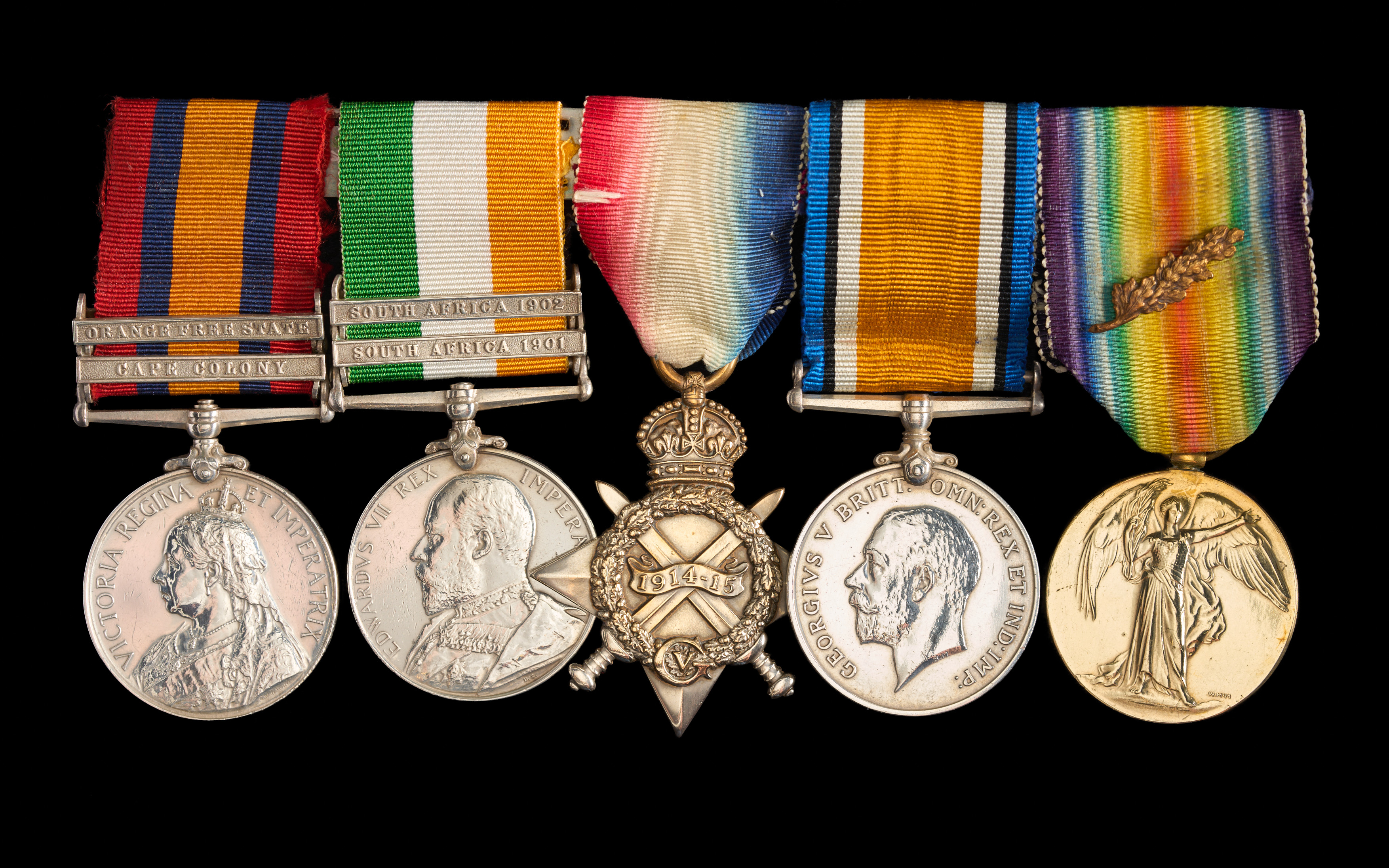

(L to R) Queen’s South Africa Medal with Orange Free State and Cape Colony clasps; King’s South Africa Medal with 1901 and 1902 clasps; 1914-15 Star; British War Medal; Allied Victory Medal with oak leaf
Henry was born on the 17th October 1880. His father, John, was a rector born in Yorkshire, and his mother, Elizabeth, was born in Canada. They lived at Rectory House in Chew Stoke, near Bristol and had five children, of which Henry was the middle child and only boy. Henry’s sisters were Gertrude, Edith, Mildred and Helen. Their large household also included seven servants including a governess, cook and several maids. Henry attended Malvern College, a boarding school in Worcestershire.
Henry joined the Army on the 18th August 1900 as an officer with the Queen’s Royal West Surrey Regiment. He first served in the Boer War where he was a Second Lieutenant commanding a mounted infantry unit.
Henry transferred to the Manchester Regiment on the 19th October 1901 and was promoted to Lieutenant on 5th February 1903. It is not known which Battalion he served with at this point. Henry was appointed Assistant Superintendent of Gymnasia from 1907 until 1911. This post involved overseeing the standards of physical training in the Army.
Henry was promoted to Captain in 1914 and served with the Manchester Regiment during the First World War. He served in Gallipoli with the 11th Battalion from July 1915. On the 10th August he was wounded during heavy fighting in the assault on Anafarta Ova. Henry was ‘mentioned in dispatches’, meaning his superior officer referred to his gallant actions in a report to high command. This is acknowledged by the oak leaf on the ribbon of his Victory Medal. In 1916 was promoted to Major.
In 1918 Henry transferred to the Royal Air Force and served as a Squadron Leader until the end of the war. In 1920 he married Helen and they lived at Playhatch House in Oxfordshire. Henry worked for the Air Ministry until 1923 when he retired due to ill health. However, by 1939 he was working as a physical instructor at the age of 59. Henry died on the 22nd July 1949 at the age of 68.
Henry’s medals were donated to the museum collections in 2015.




